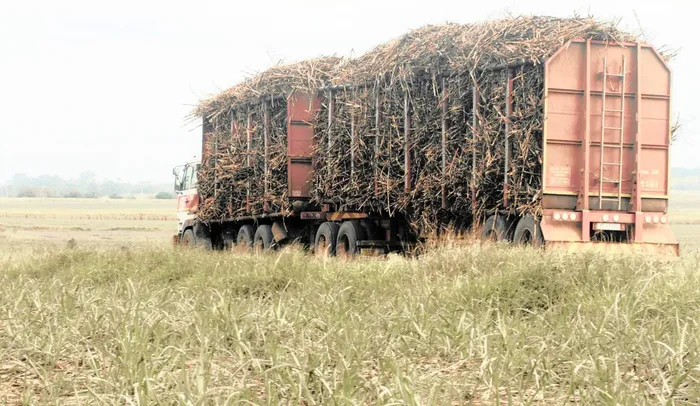SA canegrowers fear 30% tariff on sugar exports to the US will jeopardise industry
AGRICULTURE

SA Canegrowers, which represents 24,000 small scale farmers and 1,200 large-scale growers, in a statement on Wednesday said they are deeply concerned about the 30% tariff on South African sugar exports to the United States, set to take effect on 1 August.
Image: Karen Sandison/Independent Newspapers
SA Canegrowers, which represents 24 000 small scale farmers and 1 200 large-scale growers,has expressed deep concerns about a new 30% tariff on South African sugar exports to the United States, set to take effect on 1 August.
Industry leaders fear that this punitive tariff will render South African sugar uncompetitive in one of its most crucial markets and threaten the livelihoods of millions reliant on the sugar supply chain.
SA Canegrowers chairman Higgins Mdluli highlighted the urgency of the situation, insisting that the South African sugar industry poses no threat to the US market.
“It is important to stress that the South African sugar industry poses no threat to the US market, which relies on sugar from outside the US to meet local demand,” Mdluli said.
“The US has up until recently had a quota system in place to ensure that the US retains full control over both the volume and price of imported sugar.”
The US has long relied on imports to satisfy its domestic demand, with a previous quota system ensuring tight control over volume and pricing of imported sugar.
With extensive subsidies provided to competitors such as Brazil, India, and Mexico, South African growers are increasingly squeezed out of this critical market.
Mdluli said the 30% tariff was particularly alarming for local farmers as it will make South African sugar less competitive in the US market when compared to heavily subsidised competitors like Brazil, India, and Mexico.
“Losing competitiveness in the US market comes at the same time that South African sugarcane growers are under pressure from cheap, subsidised imports flooding into our ports – from the same global competitors” he said.
“The South African government is, however, in a position to help protect the local sugar market from unfair trade practices, an essential move as the industry supports a million livelihoods across the value chain.”
Recent data reveals a stark increase in foreign sugar imports, with arrivals from countries outside the Southern African Customs Union (SACU) growing four-fold from 25 000 tons in 2023/24 to over 100 000 tons a year later.
Mdluli said this trend threatened to continue, with projections indicating even higher imports for the 2025/26 season. He said this rapidly expanding market share of imported sugar raised alarms about the viability of South African sugarcane growers.
He added that subsidised sugar from foreign markets also did not necessarily lead to cheaper sugar for local consumers as importers use the price differential to increase their profits by selling at local prices.
“This keeps international prices artificially low and results in foreign sugar flooding the South African market at below the cost of local production.
“South African sugarcane growers cannot compete with these unfairly subsidised imports arriving every day at our ports, particularly as the industry contends with a range of other pressures including erratic weather patterns, mill closures, the Health Promotion Levy (sugar tax), and the 30% tariffs that will reduce revenue from the US. For every ton of imported sugar that enters the local market, the industry loses R6 000.”
“The result is, however, that locally grown sugar is displaced, and thousands of jobs are put at risk. Consumers who unwittingly buy foreign sugar fund growers in other countries, whilst local growers struggle.”
Dr Siyabonga Madlala, chariman of the South African Farmers Development Association, said they were greatly concerned about the deteriorating trade relations between South Africa and the US as a key trade partner.
“South Africa exports sugar to the US market that attracts premium prices. Increased reciprocal tariffs will depreciate the benefits of trade with the US, reduce sugarcane prices for black farmers, and threaten their sustainability,” Madlala said.
BUSINESS REPORT